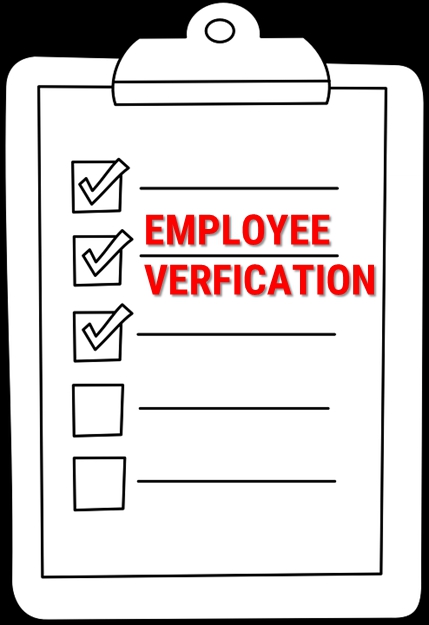Employee verification companies in India still lack diligence and awareness for ensuring tightly-knit, standardised holistic processes. What purpose do they solve? Are they mere checkboxes? HRKatha explores!
Safeguarding one’s interests is a natural tendency that all living beings are born with. From single- cell organisms to humans, each one has one or the other innate reflex for defence against potential harm. Why should then organisations look at it as a mere tick in the box, while hiring employees? Efficient employee verification is a must for all businesses to ensure a safe workplace for existing employees and a reliable entity to engage with, for its clients.
However, there are a few loopholes in both the present employee verification systems, and in the way organisations look at the whole process. HRKatha asked a few HR heads about the existing state of employee verification systems and their expectations from the same. While they agreed upon the fact that technology and access to various platforms for background verification has eased out the process, they unanimously felt that the tools currently in use fail to offer end-to-end solutions.
Challenges in prevailing systems and processes
With different organisations having different requirements in terms of the checks they seek to ensure, the demand and expectations from the employee verification tools is extremely fragmented. Saurabh Nigam, vice president, human capital, Omidyar Network, notes that “Since the requirements are scattered and not so well defined, the existing offerings in the space are also diverse.”
“The background verification today only reveals and authenticates the correctness of dates, compensation, job title, reason of leaving, and so on—basically, only factual information from the previous employers.”
Deepti Kapoor
Sharing another, almost fatal, challenge, Manish Kumar, head-HR and learning & development, Ricoh India, says that the existing systems are reactive and respond only after an offer has been made or worse, soon after one has joined an organisation. “In addition, the process may take up to 45 to 60 days. In the meanwhile, the organisation may be at risk in case the verification later reveals a negative trait of the candidate.”
Deepti Kapoor, head-BPHR, corp and talent management, Aircel, agrees that in line with the digital explosion, the definition of background verification is also altering. As opposed to the regular post-employment process to validate the information on CV, the expectation now is to understand the embedded “way of working” and emotional quotient of the prospective candidate in the real time work situation.
“The background verification today only reveals and authenticates the correctness of dates, compensation, job title, reason of leaving, and so on—basically, only factual information from the previous employers,” she says.

Kumar agrees and reveals that while in their organisation too, they mostly rely on basic checks, he feels that ensuring financial credibility of a prospective employee can offer more insights. In addition, they are looking at criminal verification for their data-centre employees as they deal with a lot of sensitive client data that needs to be kept confidential at all costs.
Nigam adds that unlike in the US, where there are standardised processes for legal and ethical verification, organisations in India still lack diligence and awareness for ensuring tightly-knit, standardised holistic processes.
Revelations from crystal gazing for employee verification systems
With the changing dynamics of the work environment, the rules of human capital are being re – written. “The expectation from the existing central database agencies (outsourced background verification companies) is to act as a central ‘HRIS’ system and automate the database to support the interface between the previous employers and prospective employer, such as the CIBIL scorecard in banking parlance,” Kapoor opines.
“Employee Verification in India still lack diligence and awareness for ensuring tightly-knit, standardised holistic processes.”
Saurabh Nigam
Although a clean past is indicative of a person’s intent and there’s probability that the person will turn out to be the right choice, the existing verification systems are not 100 per cent predictive of future risks. According to Kumar, although a lot of smart tools already exist, which in addition to the basic background check, also test a candidate’s behaviour, action, reactions and thought process under various situations—such as in stress or when lured by something—there is a clear need for schemes and structures that integrate the entire value system of an organisation into the process.
Kapoor is also of the view that a background verification tool should provide a complete background check on the “work nuances” in the previous employment, highlights of performance feedback (not just the performance rating), disciplinary/cautionary incidents and key personality traits of the prospective candidate.
On the process front, even Nigam believes that there is a strong need for standardisation. He also emphasises on the need for end-to-end automation and digitisation of these processes. “With the government focussing strongly on digitising all entities through the Aadhar number, even the employee verification process needs to be in sync. The employee verification services need to consider digitising the process in line with Aadhar, such that the entire information about a person can be accessed and verified in one place,” he says.
“The future of employee verification would hold strong if there is a singular platform that aggregates the entire information, which job seekers or individuals can voluntarily enter into a system.”
Manish Kumar
In line with Nigam’s suggestion, Kumar feels that the future of employee verification would hold strong if there is a singular platform that aggregates the entire information, which job seekers or individuals can voluntarily enter into a system. The platform or service provider can then authenticate the information and keep it confidential until a candidate allows a recruiter or an organisation to access the same. It is similar to uploading a CV on a job site from where organisations can, in no time, obtain access to a pool of candidates.
Taking this idea a step further, Kumar says, “In case there are more than one platform, which carry candidate credentials, they could integrate on a data and revenue share model, such that the hiring organisations or the end-users have a one-stop-solution to all information they seek about their prospective employees.”
Last but not the least, Nigam believes that the user interface of the existing employee verification systems need improvement, such that they are more user-friendly and comprehensive. All this would certainly expedite the process, making it more efficient, saving organisations a lot of time while ensuring stronger security for the organisation, its people, data and business on the whole.
Kapoor beautifully concludes, “Though the ‘power of aggregation’ by the background verification companies can be the next ‘win – win’ proposition, it can also be a double-edged sword, if not managed responsibly by the managers and the organisations.”
Value our content... contribute towards our growth. Even a small contribution a month would be of great help for us.
Since eight years, we have been serving the industry through daily news and stories. Our content is free for all and we plan to keep it that way.
Support HRKatha. Pay Here (All it takes is a minute)





































Recruiters may feel that they can trust the information on resumes, but today’s stiff competition in the job market has led many people to pad their information to get a job. If you want to increase your chances of hiring the right person for your open position, you need to include a full employment verification in your background check tools. However, the current employee verification companies are just doing regular checkbox ticks and not real assessment or verification.
Employee Verification companies are real scam… They do nothing. They will call people as reference and these people will be suggested by the candidate. So what verification are you talking about. It’s just a facade and companies have found a new way to spend money in the name of policies.
All in the name of Employee Verification. I think companies should verify them first before awarding them the contract.
What happens when you hire someone through referrals and it happens in many many cases especially in certain industries such as media, advertising, marketing etc… Do you need a employee verification companies. And what for?
This is modern HR where everything is outsourced. Even for assessment third party is used. So what is HR for. when you can’t evaluate and assess a candidate.
Hi Sindhia, what do you expect HR to do. They are supposed to strategise and facilitate and not just execute. Would you expect a marketing to design creatives for an ad campaign. No there are specialists for the same. It works the same way.
Employee verification does not end by verifying the correctness of the dates of previous employment, age or compensation data. It should include his behaviour with his peers and decision making in critical incidents.
Vijaya saradhi.
Employee verification does not end by verifying the correctness of the dates of previous employment, age or compensation data. It should include his behaviour with his peers and decision making in critical incidents.
Vijaya saradhi.